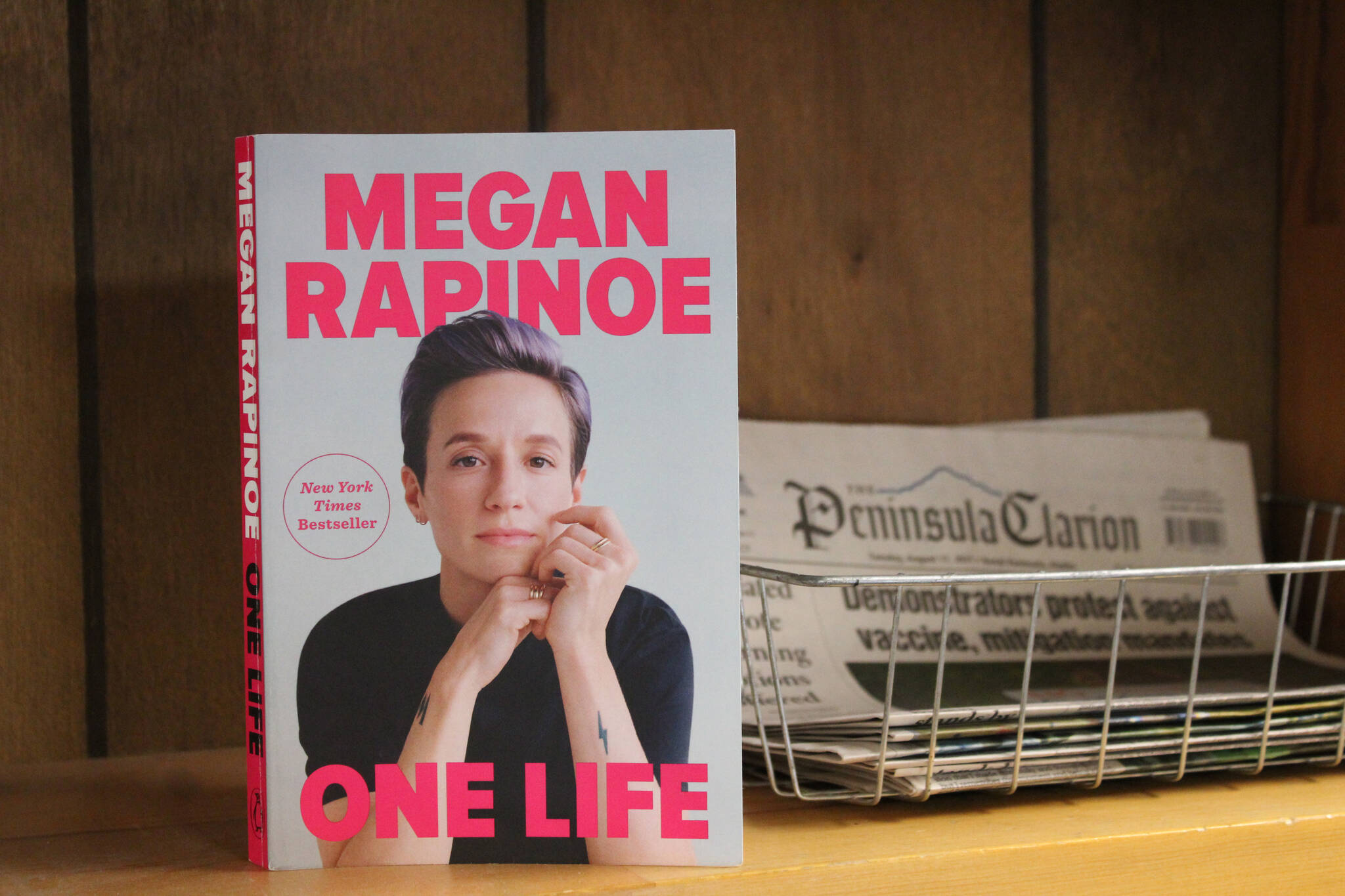Sports weren’t really optional for my sister and I growing up. I first tried on ice skates at 3 years old, and tried my luck on downhill skis at our local bunny hill for the first time when I was 4. By the time I was 5 my parents had taken me to my first T-ball practice.
“I don’t care which sports you choose,” my dad would tell us, “as long as you play one every season.”
Athletics had a huge influence over me — perhaps more than any other area of my life — for the better part of 15 years of my adolescence, until I decided to walk off my college’s softball team before my freshman season when I was 18. While I know sports are so much more than just practices and tournaments to some, it’s only been in the last few years that I’ve realized there’s more to life than the game.
Megan Rapinoe is perhaps one of the most accomplished professional athletes of my generation, but her achievements span far beyond the soccer pitch. In her memoir, “One Life,” she recounts her journey as an Olympic and World Cup champion — as well as her personal quest to become anti-racist and attain pay equity with male soccer players. Even more compelling, especially following Pride Month, is how she came to be a queer icon.
“It wasn’t like, oh, suddenly I’m gay,” Rapinoe writes, as she recalled having feelings for a woman — a University of Portland teammate — for the first time while she was in college. “It took a second to figure out what was going on. But while it was happening, it didn’t feel negative. It was just … normal.”
And that, I think, is the crux of the story. There’s nothing different about queer romance — Rapinoe writes about her loves and breakups the same way heterosexual women do — and there’s nothing different about the way gay people love others. They’re just people.
About the end of her relationship with professional soccer player Abby Wambach, Rapinoe writes: “Looking back, what I see is two young people who for a while were deeply in love. I also see the selfishness of youth. At the time, Abby seemed so much older than me and I gave her almost no leeway to make mistakes, or have needs. Now, of course, I realize that she was young, too …”
On her love for professional basketball player Sue Bird, she says: “I was more myself with Sue than with anyone I’d ever been with, but I also needed to be my best self — so as not to lose her. I tell her to this day — if she ever breaks up with me, I’ll crumble to dust.”
There’s no doubt that Rapinoe has been an outspoken, if not controversial, celebrity athlete. She came out to her family, friends, and teammates well before she did publicly in 2012, but still: writing to the masses about the intricacies of any romantic relationship, let alone a queer one, requires a certain level of vulnerability. But it also normalizes the kind of love that has been erased, threatened and criminalized throughout history.
Throughout Rapinoe’s childhood and young adulthood, same-sex couples couldn’t legally get married in many parts of the country. It wasn’t until June of 2015 that the Supreme Court deemed gay marriage a constitutional right to anyone in any state, a close 5-4 vote, in Obergefell v. Hodges.
With the rollback of Roe v. Wade, a 1970s landmark case that granted people the right to an early-term abortion that was overturned by the Supreme Court last month, many folks are wondering if gay marriage could be next. Supreme Court Justice Clarence Thomas wrote a concurring opinion after the Roe rollback recently, stating that the court “should reconsider” the Obergefell v. Hodges decision, among others, according to the New York Times.
Rapinoe’s story reminds us all that even though queer people have far more hoops to jump through than heterosexual people, love is love. And queer people will continue to love who they choose.
In her chapter titled “Sue,” the Olympic champion writes an excerpt about posing as the first gay couple to appear in ESPN The Magazine’s Body Issue.
“… The shoot felt meaningful: to be the first, to be out, to be proud,” Rapinoe writes. “The whole thing was a big, splashy way of normalizing gay relationships.”
Gay people are so diverse, and they’re so many things — they’re coworkers and neighbors, they’re athletes and artists and everything in between. And while she is a gay icon, Rapinoe’s story is one of so many more.
Rapinoe is a member of the U.S. Women’s national soccer team, and has won the 2015 and 2019 FIFA Women’s World Cup tournaments, and struck gold at the 2012 London Olympics. In 2019 she was named the best FIFA women’s player, and awarded the Golden Boot. She was also honored with the Board of Director’s Award at the 2012 Los Angeles Gay and Lesbian Center’s 41st Anniversary Gala.
“One Life” was published in 2021 by Penguin House LLC.
Reach reporter Camille Botello at camille.botello@peninsulaclarion.com.
Off the Shelf is a bimonthly literature column written by the staff of The Peninsula Clarion that features reviews and recommendations of books and other texts through a contemporary lens.

